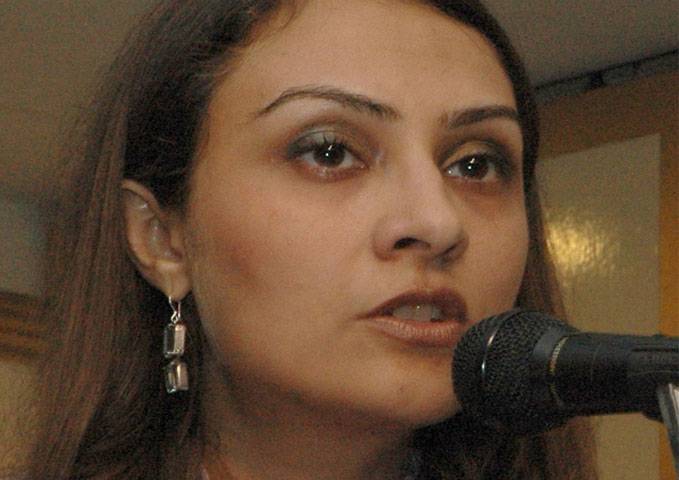ISLAMABAD - The Special Board of Benazir Income Support Programme (BISP) Friday approved Rs. 102 billion budget for the year 2015-16.
In its 23rd meeting, the board approved BISP budget for 2015-16, Updation of National Socio Economic Registry (NSER), De-crediting policy and Accounting treatment of de-credited amount, a press statement issued here stated.
The meeting was chaired by Minister of State and Chairperson BISP, Marvi Memon.
The Board closed BISP budget 2014-15 by meeting the targets set by IMF of reaching out to 5 million beneficiaries and spending Rs. 93.6 billion. This year utilization was 96.3% against the utilization of 71.5% in 2012-13.
Out of Rs. 102 billion for 2015-16, Rs. 93,765.276 million have been allocated for Unconditional Cash Transfer (UTC), this amount is 91.93% of the total expenditure. The amount for UCT in current financial year has been increased as BISP aims to raise the number of beneficiary families to 5.3 million from the current strength of 5 million.
Rupees 2835.312 million will be spent in the context of service charges, which stands at 2.78% of the total expenditure. This is a reduction of expenditure of 31.25% on smart card and mobile phone banking. On BDCs a reduction of 8.3% has been managed through better negotiations with banks. The total administrative expenses is 2.28% of the total expenditure which is Rs. 2330.410 million to be utilized for salaries, premises charges and other operational costs.
The BISP board also gave its approval in principle for updating National Socio-economic Registry (NSER) as current data is almost five years old and development partners like World Bank and DFID have also shown willingness to provide technical and financial assistance for this exercise.
During the meeting, Marvi Memon emphasized that this demand of updation was not just a scientific requirement but was a demand felt in most rural and urban areas of Pakistan where the poorest lived. This was the case because there were many who had exited poverty and needed to be taken out of the database and many who had entered poverty and needed to be included in the database to ensure that BISP was fulfilling its national duty of being a truly representative social safety net for Pakistan.
The revised de-crediting policy of BISP and accounting treatment of de-credited amount were also approved by the Board members.
The proposals in the revised de-crediting policy included TORs for the third party to conduct the study to ascertain the reasons of non-withdrawal and Ex-post Facto approval for the use of de-credited amount for other operational expenses.
Under this policy, BISP observes the accounts of the beneficiaries on continuous basis. If no activity is observed for two consecutive years, banks de-credit the amount into BISP’s main account. The account of such beneficiary is reactivated and the de-credited amount is returned once the beneficiary proves her existence to BISP.
BISP at the end of February started sanity check of its beneficiary database to ensure transparency and correctness of eligible beneficiaries. With this exercise 125, 714 records of the entire database of 5 million beneficiaries were wrong updates made with the connivance of BISP officials countrywide. To penalize the corrupt practices BISP management had started official proceedings on fast track basis.
Board was informed that considering the high level of illiteracy in the beneficiary population a new Payments Complaints Management System had been recently launched to provide ease of lodging and getting complaints resolved.
The Board was informed with its implementation of Waseele-e-Taleem program, a conditional cash transfer for enrolment of children in schools, BISP has successfully enrolled 700,000 children in schools during 2014-15 against the target of 600,000.
Friday, April 19, 2024
Board approves Rs 102b BISP budget

SC suspends ECP’s re-polling order in PP-51
April 19, 2024
Court approves plea bargain of Parvez Elahi’s co-accused
April 19, 2024
Zardari creates another parliamentary record
April 19, 2024
KP politicians, civil society laud President’s address
April 19, 2024
A Tense Neighbourhood
April 19, 2024
Dubai Underwater
April 19, 2024
X Debate Continues
April 19, 2024
Hepatitis Challenge
April 18, 2024
IMF Predictions
April 18, 2024
Kite tragedy
April 19, 2024
Discipline dilemma
April 19, 2024
Urgent plea
April 19, 2024
Justice denied
April 18, 2024
AI dilemmas unveiled
April 18, 2024
ePaper - Nawaiwaqt
Advertisement
Nawaiwaqt Group | Copyright © 2024





